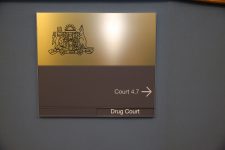Queensland May Bring Back Drug Court

Queensland’s drug court was established in order to divert those who commit drug-related offences away from the criminal justice system and break the cycle of crime, by placing them on tailored rehabilitation programs and monitoring their progress.
However, the court was scrapped in 2012 by then Premier Campbell Newman, in a move that reportedly saved the government over $30 million – albeit in the short term.
Plan to reintroduce drug court
Now, a review by the Department of Justice and attorney-general has called the reinstatement of the court, recommending its extension to alcohol-related offences as well.
Former Queensland Law Society president Bill Potts has applauded the proposal.
“Addictive behaviour across all forms needs to be treated if the court is to achieve its purpose, which is not merely punishment but to deal with issues causing criminality”, Mr Potts said.
While the decision to shut down the court was criticised by community legal services, drug law reform experts and social workers, others cited the fact that only 400 offenders had successfully completed the program in 12 years.
Drug courts
Drug courts were introduced across Australia at the end of the 1990s, and they currently operate in New South Wales, Queensland, South Australia, Victoria and Western Australia.
Although the rules differ across jurisdictions, the main aim of the courts is to divert illicit drug users from prison and into treatment programs, in an effort to get them back on the right track.
The new and improved Queensland model would be based on special courts operating in Victoria and New Zealand, which also deal with offenders struggling with alcohol problems.
Alcohol monitoring equipment
The Queensland government recently advertised a tender for alcohol monitoring equipment, stating it was considering introducing the devices to ensure offenders stay off the booze.
American actress Lindsay Lohan was forced to wear an alcohol monitoring bracelet last year as a condition of her bail.
The bracelets are based upon the technology of breathalyzers. They take a sweat sample from the skin regularly and store the data, then transmit it to a remote computer for viewing and analysis.
Because alcohol can last up to 12 hours in the body and about one percent of it leaves through the skin, the bracelets are an effective way to detect whether a person has been drinking.
Effectiveness
If reintroduced in Queensland, many offenders could serve their sentences in home detention, which would take the pressure off the over-crowded prison system.
Research recently conducted at Flinders University suggests that home detention is more effective in reducing re-offending than prison. And many point out that the 400 offenders who previously completed Queensland’s drug court program had far lower rates of reoffending then those sent to prison.
A formal announcement about the Queensland proposal is expected in coming months.








